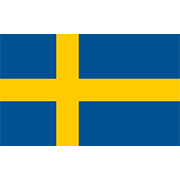Fiscal subject related
To summarize, whoever runs a digital platform needs to decide for themselves whether they are covered by the new rules:
- Platform operators covered by the rules must register by June 30, 2023, at the latest.
- Platform operators who do not have sellers who are required to report can apply for an exemption from submitting control data, which must be done by May 2, 2023, at the latest.
- An e-service for notification and application for exemption is available on the Tax Agency's website.
- Platform operators who have sellers who are required to report must review their sellers' information (the so-called customer awareness process). Some review must be completed by December 31, 2023.
By the regulations, this creates obligations for sellers, which are defined as users of a platform who are registered on the platform and who carry out a relevant activity. To be covered by the reporting obligation, the seller must be active during the reporting period and must not be an exempt seller. The seller must carry out a so-called affected activity. It is an activity that is carried out for remuneration and includes the rental of real property, the provision of personal services, the sale of goods, and the rental of means of transport.
Other news from Sweden
Change of VAT rates from April 2026 in Sweden
 Sweden
Author: Nikolina Basić
Sweden
Author: Nikolina Basić
On February 25, 2026, the Swedish Parliament approved a temporary reduction of the VAT rate on food products from 12% to 6%, effective from April 1, 2026 until December 31, 2027. The reduced rate applies to most food and non-alcoholic consumables for human consumption, while alcoholic beverages, tobacco, medicines, cosmetics, animal feed, and other non-food items remain subject to the standard 25%... Read more



New education was created: Educational videos for Sweden
 Sweden
Author: Nikolina Basić
Sweden
Author: Nikolina Basić
This video series provides a comprehensive overview of Sweden’s fiscalization framework, starting with general concepts, legal foundations, and the scope of obligated taxpayers. It then deep-dives into fiscal devices, cash registers, control units, certification, data flows, and communication with the tax authorities, explaining both hardware and software requirements. Read more
Subscribe to get access to the latest news, documents, webinars and educations.
Already subscriber? Login


New document was uploaded: E-commerce SE - Legal requirements
 Sweden
Author: Nikolina Basić
Sweden
Author: Nikolina Basić
The document explains Sweden’s fiscalization framework, covering mandatory cash register use, control units/systems, registration procedures, and the technical and operational requirements businesses must follow when recording sales and issuing receipts. It details how transaction data is secured via certified control units, how communication with the Swedish Tax Agency works, and what obligations apply regarding receipts, VAT rates, payment methods, audits, and penalties. Read more
Subscribe to get access to the latest news, documents, webinars and educations.
Already subscriber? Login


New document was uploaded: EV-chargers from the Fiscalization Perspective in Sweden
 Sweden
Author: Nikolina Basić
Sweden
Author: Nikolina Basić
This is a regulatory analysis / compliance guidance document focused on fiscalization and VAT treatment of EV charging in Sweden. Read more
Subscribe to get access to the latest news, documents, webinars and educations.
Already subscriber? Login


Sweden introduces Digital Audit era: Tax Authority gets real-time access to business records.
 Sweden
Author: Nikolina Basić
Sweden
Author: Nikolina Basić
Sweden is entering a digital audit era by granting the Tax Authority near real-time access to businesses’ accounting, VAT, and financial records through cloud-based systems. This reform marks a major shift toward proactive, digital-first tax compliance and fundamentally changes how audits are conducted. Starting in April 2026, Sweden’s tax administration will undergo one of i... Read more



Government of Sweden proposes a temporary VAT reduction on food.
 Sweden
Author: Nikolina Basić
Sweden
Author: Nikolina Basić
Sweden has proposed a temporary VAT reduction on food, lowering the rate from 12% to 6% to ease consumer costs under bill Prop. 2025/26:55. If approved, the reduced rate will apply from 1 April 2026 through 31 December 2027. In VAT legislation in Sweden, a new bill, Prop. 2025/26:55, has been introduced to temporarily lower the Value Added Tax (VAT) on foodstuffs from 12% to 6%. The proposal marks... Read more



Fisalization in Sweden: how to correct the wrong payment method recorded in the cash register
 Sweden
Author: Nikolina Basić
Sweden
Author: Nikolina Basić
We clariify if businesses have to issue a return receipt if a wrong payment method is recorded in a cash register? Read more
Subscribe to get access to the latest news, documents, webinars and educations.
Already subscriber? Login

